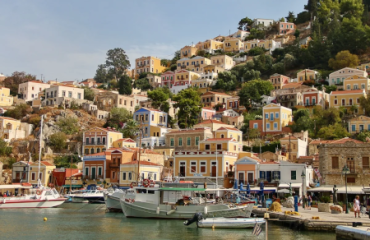
Experiential Travel in Nepal: Homestays, Culture & Connection
Nepal, a land of breathtaking beauty and cultural richness, has long captured the imagination of travellers. From the towering peaks of the Himalayas to lush valleys and dense jungles, the country offers stunning landscapes. But beyond its natural wonders lies a vibrant culture that invites deeper exploration, especially through homestays and immersive cultural experiences. For travellers from the UK and beyond, experiential travel in Nepal promises a unique and enriching adventure.
The Joy of a Nepal Homestay
Forget the typical hotel stay, Nepal’s homestays offer something far more personal. These experiences let you live like a local, forming meaningful connections with Nepalese families and gaining insight into daily life. Most homestays sit in rural areas, where life moves at a slower pace and hospitality runs deep.
Hosts greet guests with a traditional tilak, a ceremonial red mark that symbolises welcome and respect. This warm gesture sets the tone for your stay, making you feel like part of the family. The informal setting encourages genuine interaction and shared experiences. You’ll often join in daily routines, helping prepare breakfast, learning to cook dal bhat (a staple dish of lentils and rice), or participating in farming and weaving. These moments offer a delicious and hands-on introduction to Nepalese culture, where food and tradition go hand in hand.
During festivals or village gatherings, you might join in local celebrations, gaining a deeper understanding of the customs and values that shape community life.
Cultural Experiences Beyond the Homestay
While homestays provide a foundation for cultural immersion, Nepal offers countless other ways to connect with its heritage.
Festivals like Dashain and Tihar bring communities together in celebration. During Dashain, families honour ancestors and celebrate the triumph of good over evil. Guests often join in the festivities—sharing meals, exchanging gifts, and witnessing spiritual rituals that reveal Nepal’s deep-rooted beliefs. Nepal also shines through its artistic traditions. You can take part in music and dance workshops, learning to play instruments like the mandal and sarangi. These hands-on sessions allow you to engage with the rhythm and soul of Nepalese culture.
Craft workshops, such as pottery, weaving, or painting, offer another layer of connection. By working alongside local artisans, you not only learn new skills but also help preserve time-honoured practices that reflect the region’s history.
Exploring Nepal’s Natural Wonders
Nepal’s trekking routes offer more than scenic views, they lead to cultural encounters. Trails in the Annapurna and Langtang regions pass through villages where homestays welcome travellers with warm meals and heartfelt hospitality. As you hike past terraced fields and rhododendron forests, you’ll stop in villages to rest, share stories, and experience daily life. These interactions turn a physical journey into a cultural expedition, where every step brings new understanding.
The Benefits of Experiential Travel
Choosing homestays and cultural experiences brings lasting benefits. You support local economies, helping families earn sustainable incomes. Your travel choices directly contribute to community well-being. Experiential travel also fosters cross-cultural understanding. In a world where tourism can feel disconnected, engaging with locals builds relationships that transcend borders and stereotypes. By immersing yourself in Nepalese culture, you promote responsible travel. You gain awareness of rural challenges and learn to respect local customs and environments, making your journey more meaningful and impactful.
A Journey That Stays With You
Experiential travel in Nepal offers more than sightseeing, it creates lasting memories and deep connections. From the warmth of a family’s welcome to the vibrant energy of festivals and traditions, every moment invites you to engage, learn, and grow. As Nepal continues to inspire adventurers around the world, homestays and cultural experiences stand out as powerful ways to explore its heart and soul. If you’re ready to go beyond the ordinary, embrace the richness of Nepal’s culture and let it leave an unforgettable mark on your journey.



